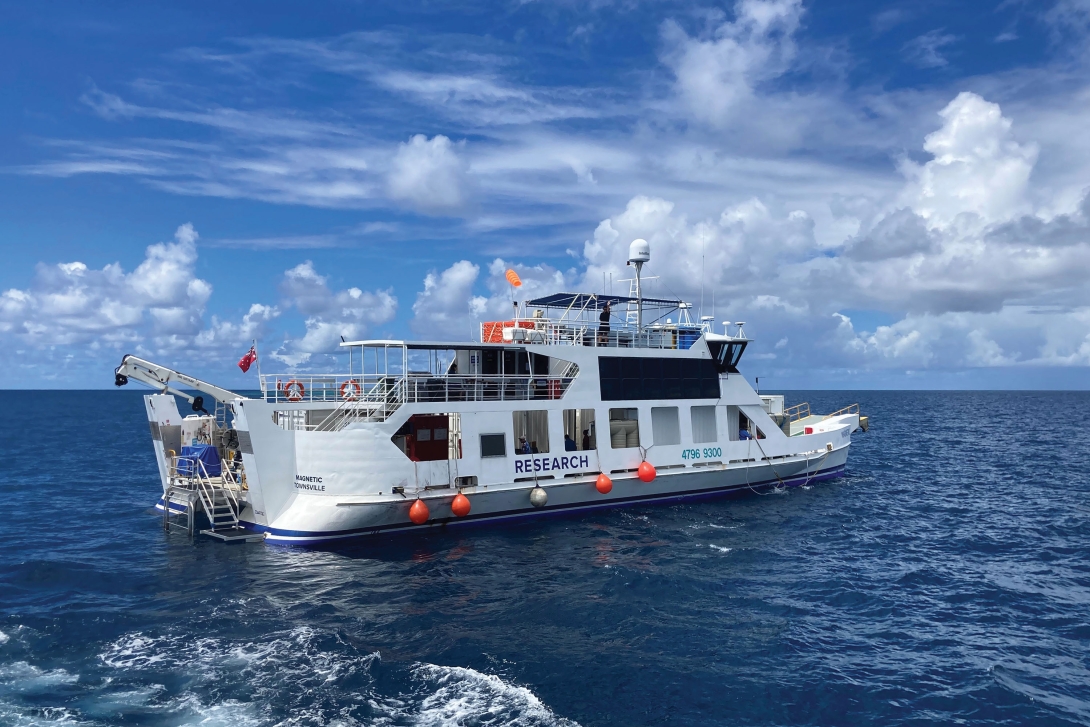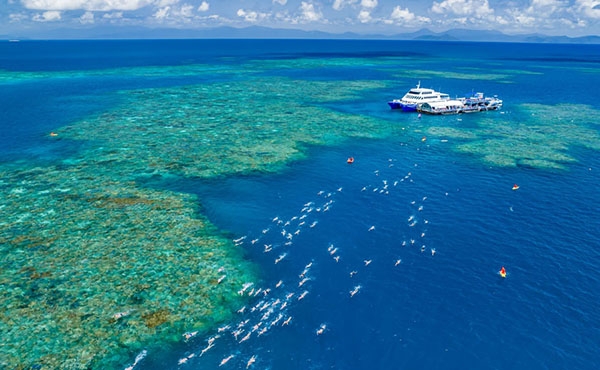Research is indispensable to the protection and management of the Region’s values. Natural and environmental sciences improve our understanding of the biology and function of organisms, and the physical, chemical and ecological processes that affect the Reef ecosystem. Research on the Great Barrier Reef has economic, social and cultural benefits and contributes to global knowledge about individual species, coral reef systems and tropical marine ecology.
Research and education are indispensable to the protection of the Region’s values
Long-term monitoring of the Reef includes biological variables, such as species abundance and demographic rates, community composition, functional diversity, taxonomic diversity, and chemical and physical environmental variables. Such programs allow the detection of trends in, and changes to, populations or environmental variables. These programs also inform management decisions by identifying drivers of change and assist with prioritising actions.
Much of the Region’s research extends beyond natural and environmental science, with interdisciplinary approaches essential to gain a holistic understanding of the Region’s values. For example, natural, environmental, social and economic sciences overlap when estimating the economic value of services that are provided by, and that affect, the Region’s ecosystems and human communities.1323 Targeted and applied research can help managers assess the outcomes of management actions and can, in conjunction with a deep understanding of natural and environmental components, lead to the development of improved operational methods and strategies (Box 10.1). Scientific monitoring of and question-driven research on key processes, habitats, species and use patterns, particularly when maintained long term, enable early detection of trends and changes in a range of the Reef’s values and factors affecting them.

More holistically, the research into the Region’s values contributes greatly to global knowledge and to the Australian economy, with an estimated combined economic value of $182 million for research and management in 2016.1324 Importantly, substantial contributions to climate change science have improved global understanding of the resilience and adaptation potential of species,920,1403 habitats 150,1404,1405 and human communities.933,1158,1406 Scientists are also investigating and field-testing a suite of interventions to support coral reefs more proactively, including both engineering and biological approaches (Box 5.4).
While knowledge advancement is critical, educational outreach activities can showcase how we are all connected through oceans by emphasising the importance of the Reef to human health. In-park edu-tourism involving secondary or tertiary groups provide an opportunity for students to actively learn through immersion; by experiencing the Great Barrier Reef and its surrounds. Direct use of the Region that is enriched with an educational component can influence behavioural change and inspire participants to care, learn and take actions that will help the Reef. Reef managers embed educational outreach in a wide range of management initiatives and programs (Chapter 7). Educational programs empower stewardship over the Region’s values for present and future generations.


